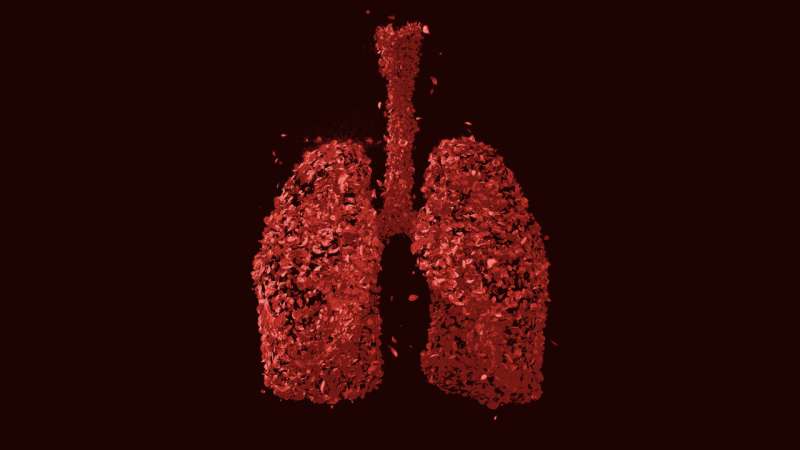This article has been reviewed according to Science X's editorial process and policies. Editors have highlighted the following attributes while ensuring the content's credibility:
fact-checked
proofread
Bacterial colonization of the lung also depends on the host genome

The lung is by no means a sterile place, as was assumed for a long time. In fact, it actually harbors a diverse microbial ecosystem. We know from previous studies that changes in the lung microbiome are associated with diseases such as cystic fibrosis, asthma or chronic obstructive pulmonary disease (COPD). Environmental factors such as smoking, nutrition in infancy or the use of antibiotics are important factors for the composition and stability of the microbial community in the lung.
We still do not fully understand how host genetics influence the lung microbiome. This is mainly because it is difficult to obtain lung samples, and the fact that the microorganisms are found in relatively small numbers. A research team from the Leibniz ScienceCampus EvoLUNG led by Professor John Baines has therefore carried out detailed studies of the lung microbiome in a mouse model. The findings are published in the journal Animal Microbiome.
"We have studied the links between individual bacterial species in the lung and markers in the host genome to identify genes that influence lung bacteria and may play a role in susceptibility to disease," explains Baines, who heads the Evolutionary Medicine working group at Kiel University (CAU) and at the Max Planck Institute for Evolutionary Biology in Plön. A total of seven genomic regions for eight bacterial traits were found. "We were able to identify several promising genes related to immune and inflammatory responses, lung functioning and disease susceptibility," says Baines.
In the study, state-of-the-art molecular biological methods of analysis were used to quantify the bacterial species present in the lungs of the investigated mice, even with a low biomass. "Our study provides the first evidence for a role of host genetic variation contributing to variation in the lung microbiota," explains co-author Dr. Meriem Belheouane from the Research Center Borstel, Leibniz Lung Center (FZB).
The amount of Lactobacillus in the lungs was shown to be strongly associated with a specific region that contains the gene coding for the anti-inflammatory cytokine Interleukin 10. This finding was confirmed in animals in which the gene for Interleukin 10 (IL-10) was deactivated.
Belheouane says, "IL-10 knockout mice had fewer Lactobacilli than the non-knockout animals." Host genetic variations were also found for the number of Pelomonas, another common bacterial species in the lungs. The functional significance of these bacterial species could potentially be used for future preventive or therapeutic purposes.
More information: C. J. Chung et al, Genome-wide mapping of gene-microbe interactions in the murine lung microbiota based on quantitative microbial profiling, Animal Microbiome (2023). DOI: 10.1186/s42523-023-00250-y
Provided by Christian-Albrechts-Universität zu Kiel



















